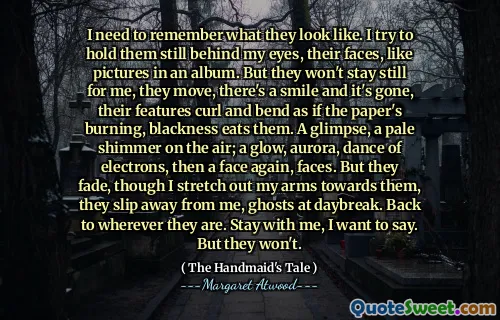I feel angry. I'm not proud of myself for this, or for any of it. But then, that's the point.
(0
Reviews)
The quote reflects a sense of introspection and conflict within the character's emotion of anger, indicating a struggle with personal pride. It suggests that the character's feelings are complex and intertwined with their situation, highlighting a lack of self-acceptance amidst turmoil.
This encapsulation of frustration serves as a critique of the circumstances faced by the character in "The Handmaid's Tale." The author, Margaret Atwood, uses this internal conflict to emphasize broader themes of identity, control, and the moral dilemmas that arise in oppressive environments.
Rate the Quote
Add Comment & Review
User Reviews
Based on 0 reviews
No reviews added yet.
Comments will not be approved to be posted if they are SPAM, abusive, off-topic, use profanity, contain a personal attack, or promote hate of any kind.
More »
Today Birthdays
1978 -
Lauren Groff
1888 -
Raymond Chandler
1971 -
Mohsin Hamid
1989 -
Daniel Radcliffe
1892 -
Haile Selassie
1912 -
M. H. Abrams
1865 -
Max Heindel
1968 -
Stephanie Seymour
1879 -
Simeon Strunsky
1936 -
Anthony Kennedy
1974 -
Maurice Greene
1982 -
Tristan MacManus
1899 -
Gustav Heinemann
1963 -
Hamish Bowles
1972 -
Marlon Wayans
1863 -
Kelly Miller
1973 -
Omar Epps
1933 -
Richard Rogers
1971 -
Alison Krauss
1953 -
Najib Razak
1982 -
Paul Wesley
1941 -
Sergio Mattarella
1975 -
Suriya






